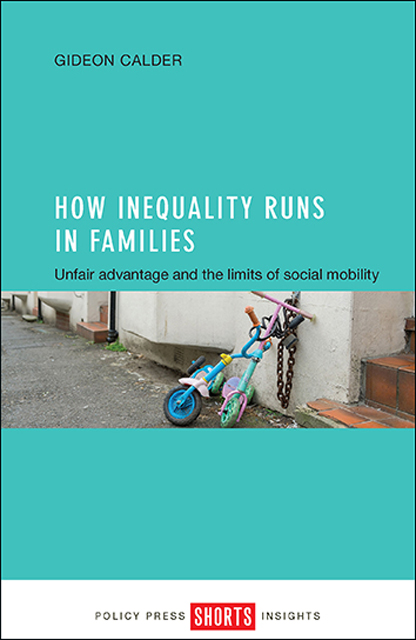Book contents
Preface
Published online by Cambridge University Press: 21 April 2023
Summary
Each December since 2013, the UK’s Social Mobility Commission has published a State of the Nation Report. Each time, the headlines have been gloomy. Family background remains a highly reliable predictor of how we do in life, where we end up, and how long we live. The 2015 report reaffirmed that there is a wider gulf between the life chances of rich and poor than in any other nation belonging to the Organisation for Economic Co-operation and Development. Britain has the closest link between parents’ earnings and those of their children among major industrialised countries. And ‘those who rise to the top in Britain today look remarkably similar to those who rose to the top half a century ago’ (Social Mobility and Child Poverty Commission, 2015b). We are a brand leader, a global exemplar of social immobility. And everyone seems to find this scandalous. Stories of an uneven playing field and a divided country, still starkly fissured along class lines, have a mysterious unifying power. For politicians of almost all persuasions, and for newspapers across the spectrum from The Guardian to the Daily Mail, this is an outrage. A tragedy. A blight. A waste of talent, a cooking of the books, a rigging of the game in favour of the already privileged. It is not OK not to be affronted by it. Yet social immobility persists, or worsens. The apple still falls close to the tree. Inequality, it seems, runs in families.
This book has two main aims. One is to explore that relationship between social immobility and the family, in both factual and ethical terms. Because family circumstances wield such an influence on how our lives go, they are deeply implicated in the transmission of unequal life prospects down through the generations. And yet most of us think that family life is – usually, in most respects – a valuable thing, and perhaps uniquely so. So there seems to be a tension between the urge to promote more equal life chances, and on the other hand the motivation to respect and protect the rights of parents and children to benefit from family relationships.
The book’s other, slower-burning aim is to argue that social mobility is not all it’s cracked up to be.
- Type
- Chapter
- Information
- How Inequality Runs in FamiliesUnfair Advantage and the Limits of Social Mobility, pp. ix - xPublisher: Bristol University PressPrint publication year: 2016

